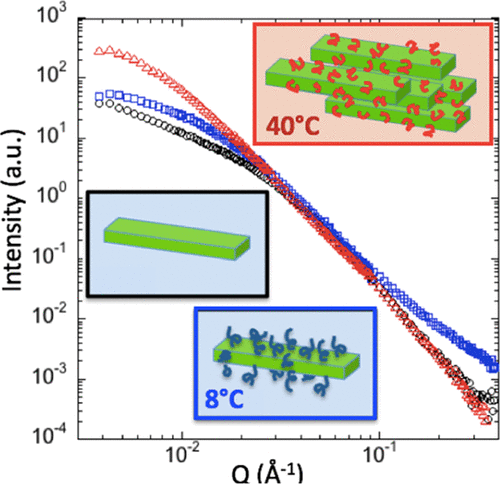Abstract:
“Thanks to the use of small-angle neutron scattering (SANS), a detailed structural description of thermosensitive polymer-grafted cellulose nanocrystals (CNCs) was obtained and the behavior of aqueous suspensions of these derivatized biosourced particles upon temperature increase was revealed. Although literature data show that the surface grafting of thermosensitive polymers drastically enhances the colloidal properties of CNCs, direct space microscopic investigation techniques fail in providing sufficient structural information on these objects. In the case of CNCs decorated with temperature-sensitive polyetheramines following a peptide coupling reaction, a qualitative and quantitative analysis of SANS spectra shows that CNCs are homogeneously covered by a shell comprising polymer chains in a Gaussian conformation with a thickness equal to their radius of gyration in solution, thus revealing a mushroom regime. An increase of the temperature above the lower critical solution temperature (LCST) of the polyetheramine results in the formation of finite size bundles whose aggregation number depends on the particle concentration and suspension temperature deviation from the LCST. SANS analysis further reveals local changes at the CNC surface corresponding to a release of water molecules and a related denser polymer shell conformation. Noticeably, data show a full reversibility at all length scales when a sample was cooled down to below the LCST after being heated above it. Overall, the results obtained by SANS allow an in-depth structural investigation of derivatized CNCs, which is of high interest for the design of functional materials comprising these biosourced colloids.”
Small-Angle Neutron Scattering Reveals the Structural Details of Thermosensitive Polymer-Grafted Cellulose Nanocrystal Suspensions
We have just published in Langmuir a study by small angle neutron scattering of thermosensitive polymers-decorated cellulose nanocrystal assemblies. This technique reveals structural information inaccessible by other methods.

